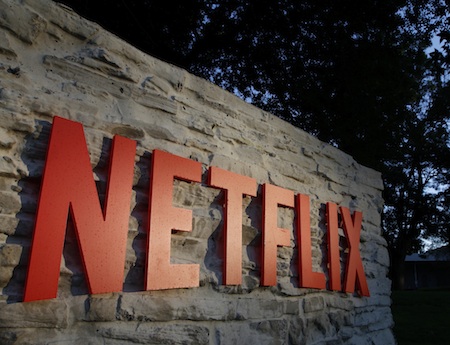FCC's O'Rielly: Netflix Did Not Violate Net Neutrality Rules

The smarter way to stay on top of broadcasting and cable industry. Sign up below
You are now subscribed
Your newsletter sign-up was successful
Republican FCC commissioner Michael O'Rielly told an American Action Forum audience Tuesday that while the Federal Trade Commission may have grounds to investigate Netflix over downgrading video quality for some wireless services—prominently AT&T and Verizon—and not others, he said the company "never violated the [FCC's] net neutrality rules."
O'Rielly said that as Netflix and others have so strenuously pointed out (and as FCC chairman Tom Wheeler has said at every opportunity), "net neutrality rules only apply to ISPs, not standalone edge providers, such as Netflix. This is completely correct as all of the prohibitive practices, costs and obligations of those rules only apply to broadband providers. So there is no net neutrality violation to explore," he said, according to a copy of his speech supplied to B&C.
O'Rielly said he would strongly oppose any application of the rules to edge providers, as he did to ISPs.
Related: AT&T Outraged at Netflix 'Throttling'
"The solution to unnecessary regulatory burdens and overreach is not to subject everyone to them, but to reduce them for all. In other words, use the parity argument to help companies and consumers alike, rather than dragging everyone into the abyss," he said.
But Netflix isn't off the hook in O'Rielly's book.
He told his audience the FCC should investigate whether Netflix had knowingly made any false statements to the FCC, like accusing ISPs of downgrading when it was the company's own actions that were responsible.
The smarter way to stay on top of broadcasting and cable industry. Sign up below
Related: ACA Calls for FCC Investigation Into Edge Practices
O'Rielly also suggested the Netflix revelations called into question not only representations made by it and Google related to interconnections but the "entire foundation and rationale of the net neutrality decision," which included interconnection under Title II for the first time in part because of interconnection issues raised by edge providers.
"Certainly, the entire interconnection regime was predicated on the fears of anti-competitive peering and gatekeeper status concocted by Netflix. And yet, at the same time it was making these claims, Netflix, itself, was engaged in highly suspect behavior," O'Rielly said.
Contributing editor John Eggerton has been an editor and/or writer on media regulation, legislation and policy for over four decades, including covering the FCC, FTC, Congress, the major media trade associations, and the federal courts. In addition to Multichannel News and Broadcasting + Cable, his work has appeared in Radio World, TV Technology, TV Fax, This Week in Consumer Electronics, Variety and the Encyclopedia Britannica.

